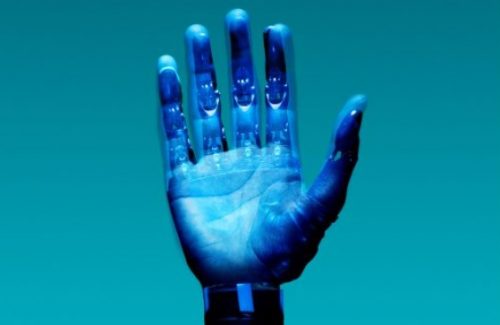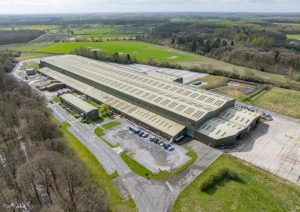The new industrial revolution will wait for no-one

A combination of funding and white-hot tech can ensure the North keeps pace with the post-pandemic landscape.
More needs to be done to ensure the region taps into the billions in venture capital and foreign direct investment that, all too often, heads to the ‘Golden Triangle’ of London, Oxford and Cambridge.
This is a key theme in a special report commissioned by TheBusinessDesk.com, Chasing Unicorns, looking at innovation performance across the region. Click here to view the full report.
Its author, Neil Murray, chief executive of Impact Data Metrics, said creating unicorns – fast-growing billion-dollar turnover ventures – is all well and good, but support systems need to be in place for other fast-growth firms.
He said: “Unicorns are rapidly-growing dynamic businesses, but underneath that, businesses can only thrive if there is an ecosystem around them.”
He said there should be measures to improve financial support, because cash is the lifeblood of growing companies who need to tap into all-important funding which, invariably, is Golden Triangle-bound. He added: “We’re not being negative about the North but how we can improve.”
Improvement could come from the Innovation Greater Manchester partnership launched this week which published a blueprint for innovation between Greater Manchester and government it says could generate a £7bn economic benefit and thousands of jobs.
Tim Newns is chief executive of Greater Manchester inward investment agency MIDAS, which is part of the initiative. He said six of the UK’s 14 unicorns are in the Northern region which is a “huge platform to build on”.

Tim Newns
He added: “A big driver is inclusive growth, so six months ago we started to create Innovation GM A global profile for innovation is somewhere where the North still lacks,” he added.
Tom Davies, CEO of Robiquity, a company focused on ‘inteligent automation’ of businesses welcomed the proposals launched this week, but insisted that, if the North is going to succeed, it is going to be on the basis of businesses in the North remaining competitive.
He said: “We are in the middle of the next industrial revolution.
“This is a revolution that says, if you are going to survive you have to build your business around human skills and robotic skills. Not a ‘metal mickey’ in the corner, but functions that people still do. In a few years these will be fully automated.”
He said businesses need to build around human skills, like design, ingenuity, empathy.
Tom pointed to companies such as The Hut Group, Boohoo and AO World who have built their businesses from a digital backbone.
He added: “The best opportunity to grow skills and the economy is to grow the businesses we have got.
“How do we help people right now? The best way is to help them digitise quickly. This isn’t a five-10 year play – it’s a one-two year play. People will disappear. They will become the next Debenhams.”
Neil Murray cautioned that he doesn’t see sufficient levels of collaboration across the North in academic research and said there are opportunities to learn from other regions, particularly in education, through better collaboration, better cooperation.
This led on to the question of finding a workforce with the right skills, and Tom admitted that he is now seeing a trend for youngsters skipping the university stage and coming directly to Robiquity, because they can be trained.
“It’s about bringing people through, giving them pactical experience on the job and making them into highly capable people.”
Invest North is a one-day virtual conference bringing together more than 500 people including business and policy leaders to set the agenda for what comes next in the North.
The event has been curated by TheBusinessDesk.com and backed by a broad coalition of organisations spanning the public and private sectors, led by EY, Squire Patton Boggs, Influential, and Impact Data Metrics.








